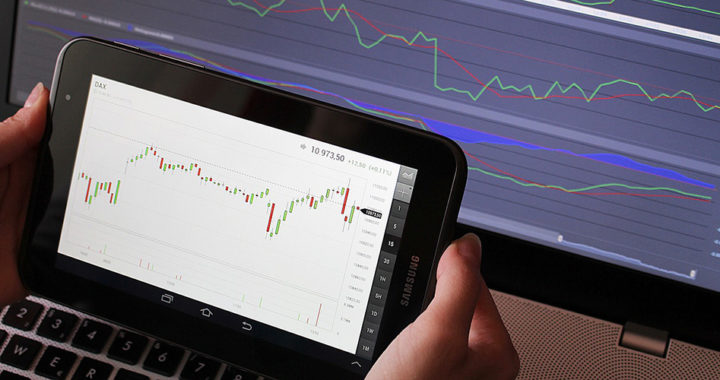The foreign exchange market or forex is a decentralized global market involved with the trading of currencies. Within the market is a small segment composed of individuals who speculate on the exchange rate between different currencies through brokerage companies. This segment is called retail forex trading.
What Are The Advantages and Disadvantages of Retail Foreign Exchange Trading?
The Pros of Retail Forex Trading
1. Accessibility
Accessibility is one of the major advantages of retail forex trading. Note that the forex market is the largest and most liquid market in the world. It operates 24 hours a day and five days a week, except during holidays. Through online-enabled platforms owned and operated by different brokerage companies, individual traders can access their accounts, evaluate real-time market pricing, gather news and information, and more importantly, trade based on speculation on the exchange rates of different currencies.
2. Low Cost
The capital requirement is also low. Anyone can readily start trading with a small amount of initial capital. Costs from brokerage and commissions can also be very low because forex brokers make profits from the spreads between currencies. Trading equities or other securities include varying brokerage structures, and traders should take into consideration brokerage fees. There is also the availability of leverage. Note that leverage means borrowing the money needed to make a trade. Traders can easily borrow money from brokers. These brokers allow individuals to trade up to 2 percent of the overall contract size.
3. Ease of Entry
Another advantage of retail forex trading is that it is easy to setup. Online-enabled platforms readily allow individuals to set up their accounts for free and start trading. There are also hundreds of technical indicators and data available to draw on for short-term traders, as well as numerous fundamental analysis theories and tools for long-term traders. Most brokers cater to traders with different levels of experience by providing an array of choices of indicators and tools. Note that online platforms allow traders with an Internet connection to access their accounts regardless of location and time.
4. Liquidity
It is also important to note the fact that forex is the most liquid market in the world because it has the largest number of market participants. The high level of liquidity efficiently and easily fulfills large orders of currency trades without large price deviations. More specific advantages stem from this, including high potential for fast returns, lowered possibility of price manipulation and price anomalies, more efficient pricing due to tighter spreads, and almost inexistence of high volatility or stagnant prices during a particular time of the day.
5. Automation
Automation is also an advantage. Platforms from brokerage companies have built-in features and tools for setting up automated trading using a set of rules or conditions. Examples of these rules or conditions include programmed entries, price limitations, stop-loss, as well as instruction to trade on specified price movements or other market conditions. Traders can access and analyze a large volume of new and regularly updated data to make decisions for setting up automated trading.
The Cons of Retail Forex Trading
1. High Risk
Individuals can experience huge and multiple losses if they have no clue about capital exposure and how to calculate leverage. Note that traders can benefit from leverage. However, the same high leverage that characterizes forex trading also enables the magnification of loss. The entire system of trading currencies can readily become a loss-making situation. It is essential for individual traders to have an in-depth knowledge of leverage, an efficient capital allocation scheme, decision-making maturity, and a strong willingness to cut losses short.
2. Self-Learning
Another disadvantage of retail forex trading is that it requires self-directed learning. Although brokers provide learning and training resources, individual traders are still on their own with minimal to zero assistance. There is also a need to become proactive when it comes to accessing and analyzing data. Most newbie traders quit because they find the entire system complex or after suffering from primary losses due to lack of knowledge. Take note that in stock market trading, there are portfolio managers that provide traders with professional advice.
3. Competition
Individual traders also face a lot of competitions from other individual traders, as well as large financial institutions such as banks and hedge funds. Note that there is a specific competition against more experienced and highly knowledgeable individual traders. Also, there is a specific competition against financial institutions with highly trained traders, access to market data and subject-matter experts, and sophisticated software platform and hardware for trading.
4. Lack of Transparency
Remember that the foreign exchange market is decentralized. There are no established authorities that regulate the trade and extensively oversee the entire activities with the market. For individual traders, the decentralized nature of the market means they are dealing primarily and solely with brokers while trading against professionals. Some of these brokers may not be transparent because they do not readily give traders control over trade order fulfillment or they do not provide the best or most updated pricing data and trading quotes.
5. Fraud
The pervasiveness of fraudulent activities is also another disadvantage of retail forex trading. Fraudsters promote this type of trading as one of the easiest ways to make money from home or as a sustainable part-time career. Individuals who are seeking to generate profits with minimal efforts often fall prey on these schemes. Some of the schemes used by these fraudsters include operating an online trading platform with no legitimate business, selling software that purportedly helps individuals to make huge profits, false advertising, and Ponzi schemes.
FURTHER READINGS AND REFERENCES
- Hayward, R. 2018. “Foreign Exchange Speculation: An Event Study.” International Journal of Financial Studies. 6(1): 22. DOI: 10.3390/ijfs6010022
- Karbalaee, A. 2012. “Risk and Return in Retail Forex.” SSRN Electronic Journal. DOI: 10.2139/ssrn.2246076
- Melvin, M. and Norrbin, S. “The Foreign Exchange Market.” International Money and Finance. 9th ed. Academic Press. ISBN: 978-0-12-804106-2





